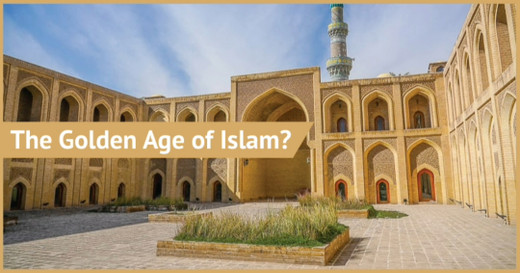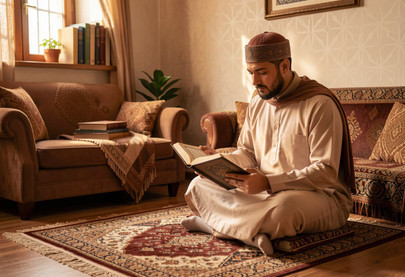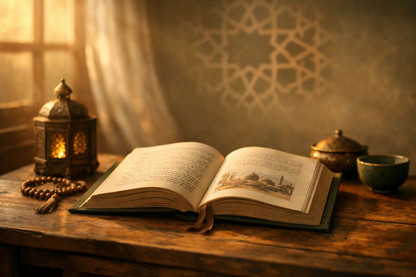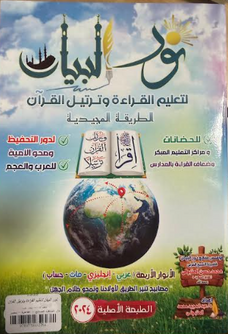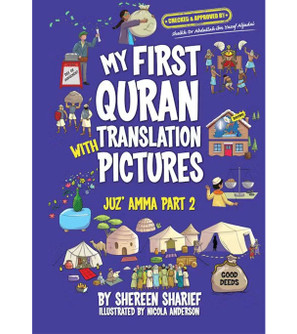What was the Golden age of Islam?
The Golden Age of Islam
The Golden age of Islam started in the 8th century of Islam, during which there was thriving in all fields, medicine, art, commerce, and science. During the Islamic golden age, Arabic culture and Islam spread to North Africa, the Middle East, Central Asia, and Southern Europe. The Era refers to the time when there was thriving in all fields, medicine, art, commerce, engineering, education, and science. During the golden age of Islam, the Islamic empire was the center of trading goods, knowledge, and everything. Muslim scientists created a calendar and managed to use astronomy for navigation, which was then used to find the direction of Mecca to face when praying. Scientists also studied the sky through observation. Learned from the Greek, Indian, and Chinese mathematics. During the golden age, Muslim mathematics separated the algebra field of mathematics as they excelled and pioneered in it. The use of Indian numerals made the trading process and exchange easier. it also helped in banking innovations. Also, art flourished during that time and they came up with patterns and designs such as and calligraphy, tessellations. Also, they excelled in painting miniature works for book illustrations.
When was the beginning and end of the Golden Age of Islam?
The beginning of the golden age was when the Abbasid Caliphate took the reign from the Umayyad Caliphate in 750. It lasted until the Mongol armies took over and destroyed the city of Baghdad. Some say that the end of the golden age was in 1258 while other historians say that it ended in 1500.
Facts about the Golden age of Islam.
During the golden age of Islam, there was a great innovation in the medical field. Most of the tools that are used now in surgeries were invented in that era. Tools like forceps, scalpels, and catgut for stitching wounds. They were invented by a famous surgent called al-Zahrawi. That’s not the only thing he did. He also wrote a manual on medical practices of 1500 pages. Through the golden age of Islam, personal hygiene items were provided, like soap and toothbrushes. Also, Muslims took the knowledge of how to make paper from the Chinese prisoners. And they used it to spread knowledge and education. Also, Paper mills were invented which made it easier to spread knowledge and the Muslims work. Muslims traveled a lot for trading and to spread Islam, so the cartographer and scholar Al-Idrisi used that knowledge to make the most modern version of the world map during their time. The basis of algebra was invented by Muhammad bin Musa al-Kwacrizmi.
Politics in the golden age of Islam.
Due to the innovation in many fields that happened during the Islamic golden age, many scientists, scholars, merchants, and artists came to Baghdad to learn and gain knowledge. Even the isolated opened up to Muslims for trading. The trading network started all the way from the Atlantic Ocean and the Mediterranean Sea in the west to the Indian Ocean and China Sea in the east. Which made the Islamic empire one of the strongest and leading empires with high economic powers. The Abbasid Caliphs Harun al-Rashid and his son al-Ma’mun had a great interest in spreading knowledge. Therefore, they built the house of wisdom in Baghdad were all scholars came to work together in a peaceful environment. Whether Muslims, Christians, and Jews they all worked in peace. The Abbasid Caliphs Harun al-Rashid and his son al-Ma’mun also encouraged the translation movement of Greek works into Arabic. But why did they have encouraged that? Because they wanted to build a library of knowledge. Where all the knowledge needed can be found in all kinds of fields. Therefore, the scholars translated philosophy, science, and medical texts. The Abbasid Caliphs Harun al-Rashid and his son al-Ma’mun wanted to excel in the field of medicine by accessing the library of knowledge. What helped the spreading of knowledge and the building of the library of knowledge so fast during the Golden age of Islam was the knowledge of how to make paper that they learned from the Chinese prisoners.
Medicine in the Islamic Golden Age.
Through the translated text of Greek and Indian works, Muslim doctors managed to acquire the knowledge they need. They increased their medical knowledge and built hospitals. During the golden age of Islam, there was a great innovation in the medical field. Most of the tools that are used now in surgeries were invented in that era. Tools like forceps, scalpels,s and catgut for stitching wounds. They were invented by a famous surgent called al-Zahrawi. That’s not the only thing he did. He also wrote a manual on medical practices of 1500 pages. A famous book that the Islamic empire and Europe used as a reference is called “The Canon of Medicine”.
Abbasid Caliphate.
The Abbasid Caliphate took the reign from the Umayyad Caliphate in 750. He made Baghdad the capital if the Islamic empire. The Abbasid Caliphate built Baghdad from scratch. It was built around a mosque in two semi-circles, therefore it was called the round city. The trading network started from all the way from the Atlantic Ocean and the Mediterranean Sea in the west to the Indian Ocean and China Sea in the east. Which made the Islamic empire one of the strongest and leading empires with high economic powers.
The golden age of Islam presentation.
During the Islamic golden age, Arabic culture and Islam spread to North Africa, the Middle East, Central Asia, and Southern Europe. The Era refers to the time when there was thriving in all fields, medicine, art, commerce, engineering, education, and science. You could learn more about the Islamic era and culture by visiting Islamic bookstore and buy Islamic books that you like
Islamic golden age education.
Muslims took the knowledge of how to make paper from the Chinese prisoners. And they used it to spread knowledge and education. Also, Paper mills were invented which made it easier to spread knowledge and the Muslims work. During the golden age of Islam, there were all kinds of Islamic books of knowledge for learners and students to find all they need. The Greek and Indian works were translated into Arabic. Additionally, the first public universities were built in Baghdad for students to learn philosophy and literature. The famous Arab folk tale collection called “Thousand and One Nights” was collected by Arab storytellers. If you want to learn more you can visit the Madina store and find the books you’re searching for. You will also find books and information about the 4 holy months in Islam. therefore, don’t hesitate and visit our website.

